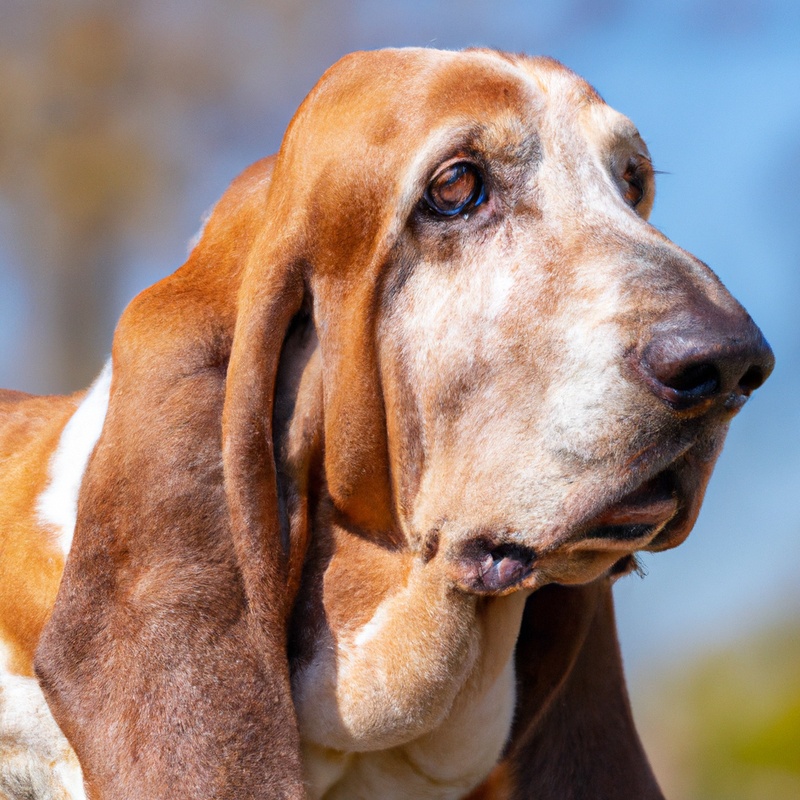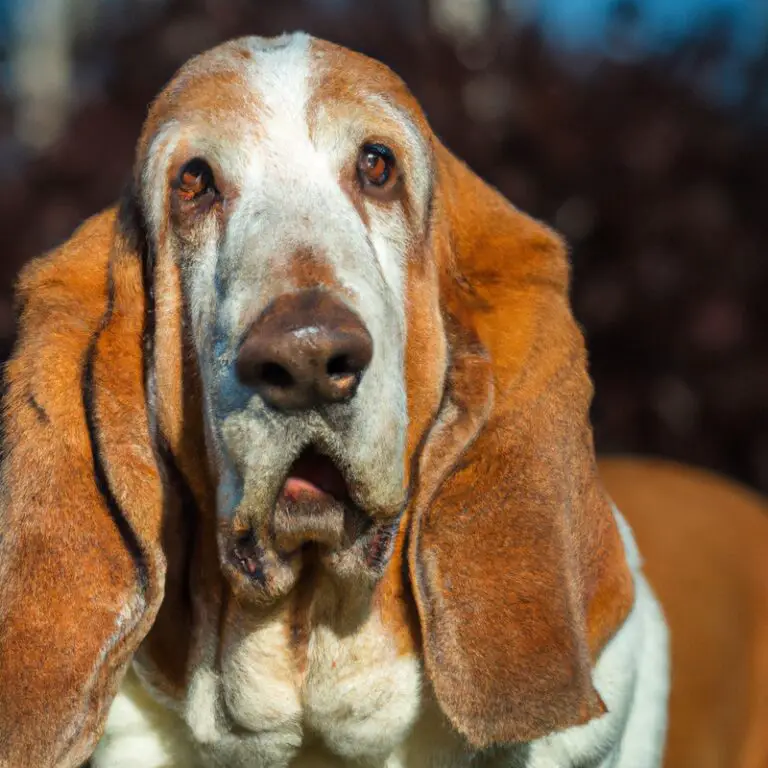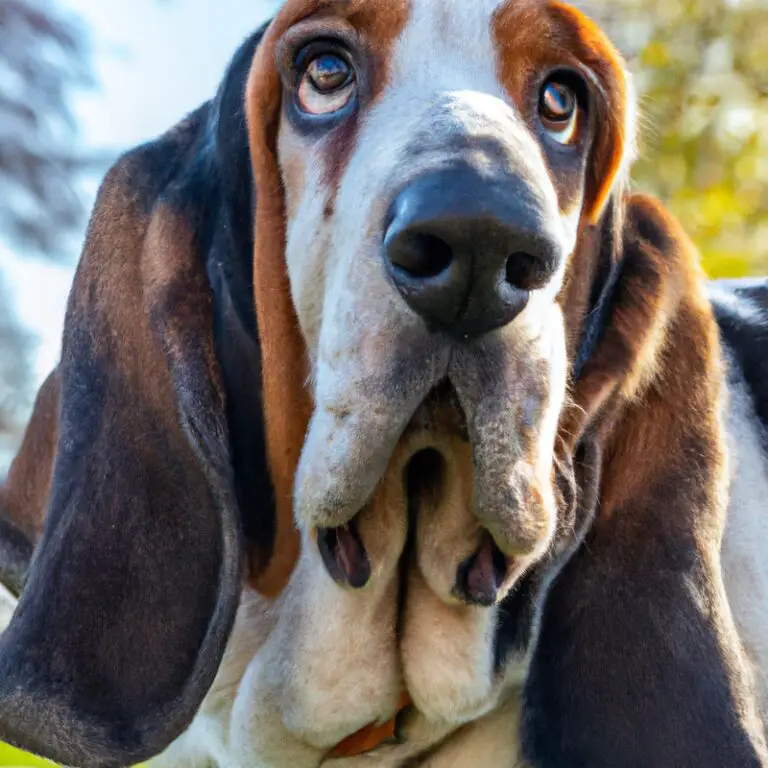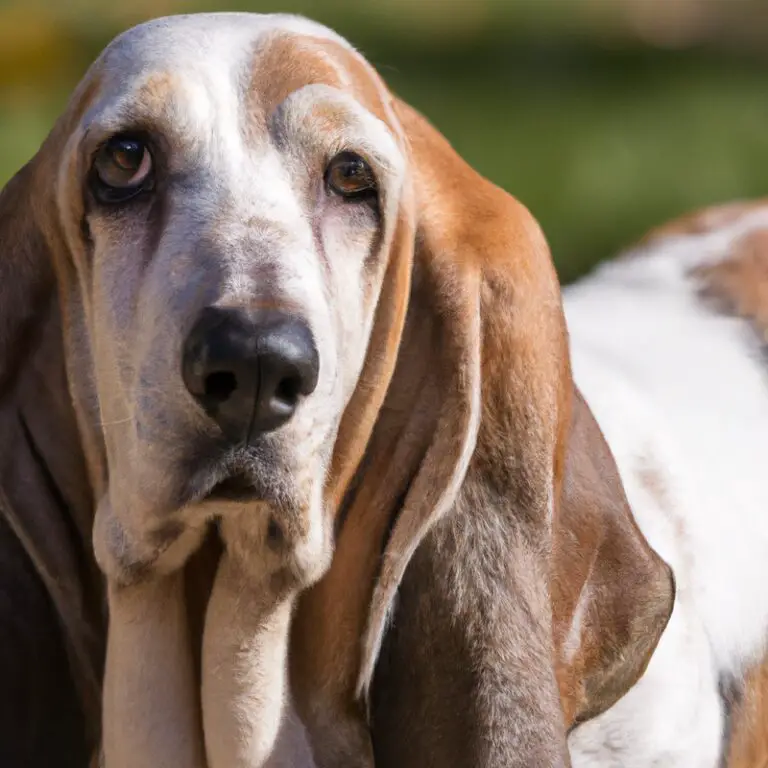Are Basset Hounds Prone To Separation Anxiety When Left Alone?
Key Takeaways:
- 1) Basset Hounds are more likely to experience separation anxiety when left alone compared to other dog breeds.
- 2) Separation anxiety in Basset Hounds can lead to destructive behavior, excessive barking, and other stress-related symptoms.
- 3) Early training, creating a comfortable environment, and providing mental stimulation can help minimize separation anxiety in Basset Hounds.
- 4) Seeking professional advice and implementing proper strategies can effectively address separation anxiety in Basset Hounds.
Do you ever feel a pang of guilt when you have to leave your dog alone at home? Well, you’re not alone.
Many dog owners worry about their furry companions experiencing separation anxiety.
But what about basset hounds? These droopy-eared, lovable dogs have a reputation for being laid-back, but are they actually prone to separation anxiety?
In this article, I’ll dive into the world of separation anxiety, explore its causes and symptoms, and determine just how common it is in our beloved basset hounds.
So, grab a cup of coffee and let’s get started!
| Topic | Are Basset Hounds prone to separation anxiety when left alone? |
| Pros | Cons |
| 1. Affectionate breed | 1. Can become destructive |
| 2. Good with kids and other pets | 2. May excessively bark or howl |
| 3. Adaptable to different living environments | 3. May develop separation anxiety |
| 4. Typically easy to train | 4. Needs proper exercise and mental stimulation |
| 5. Moderate exercise needs | 5. May display signs of distress when left alone |
Understanding Separation Anxiety in Dogs
What is Separation Anxiety?
Separation anxiety is a condition in dogs where they experience extreme distress when separated from their owners or familiar environments.
It is a common behavior problem in dogs and can manifest in various ways, such as excessive barking, destructive behaviors, and even physical symptoms like pacing and drooling.
The anxiety stems from a strong bond dogs form with their owners and can be triggered by factors like change in routine or previous traumatic experiences.
Understanding separation anxiety is important in order to provide appropriate support and management strategies for affected dogs.
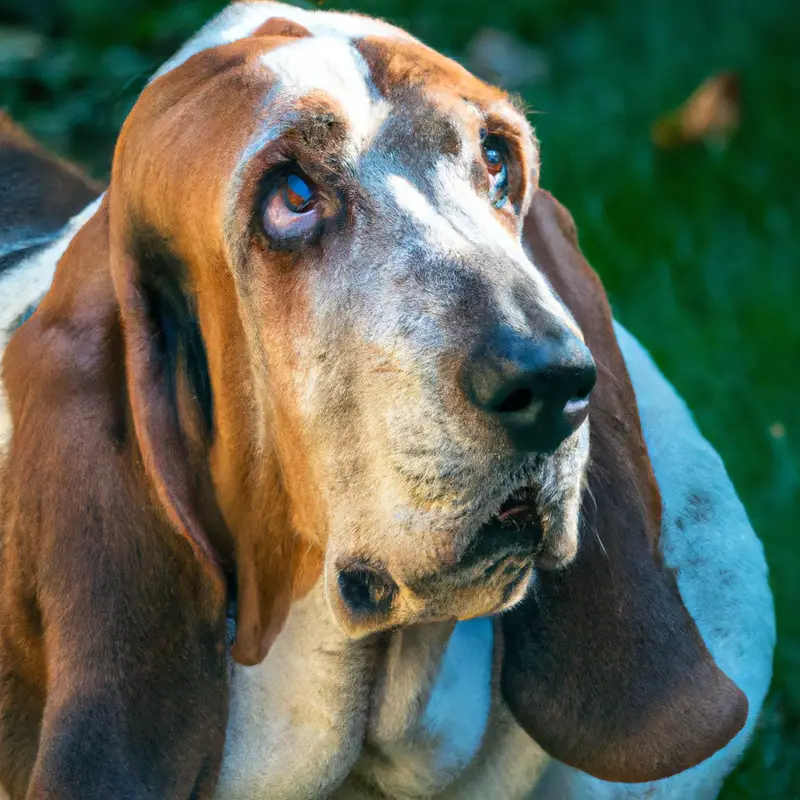
Symptoms of Separation Anxiety in Dogs
The symptoms of separation anxiety in dogs can vary, but here are some common signs to look out for:
- Excessive Barking or Howling: A dog with separation anxiety may bark or howl excessively when left alone.
- Destructive Behavior: Dogs may chew on furniture, doors, or other household items as a way to cope with their anxiety.
- House Soiling: Some dogs may urinate or defecate inside the house while their owners are away.
- Escape Attempts: Dogs with separation anxiety may try to escape by digging at doors or windows.
- Pacing or Restlessness: Restlessness and excessive pacing are common signs of anxiety in dogs.
- Excessive Drooling: Dogs experiencing separation anxiety may drool excessively, leaving wet spots on floors or bedding.
- Loss of Appetite: Some dogs may lose their appetite when their owners are away.
It’s important to note that these symptoms may also be indicative of other health or behavioral issues, so it’s always a good idea to consult with a veterinarian for an accurate diagnosis.
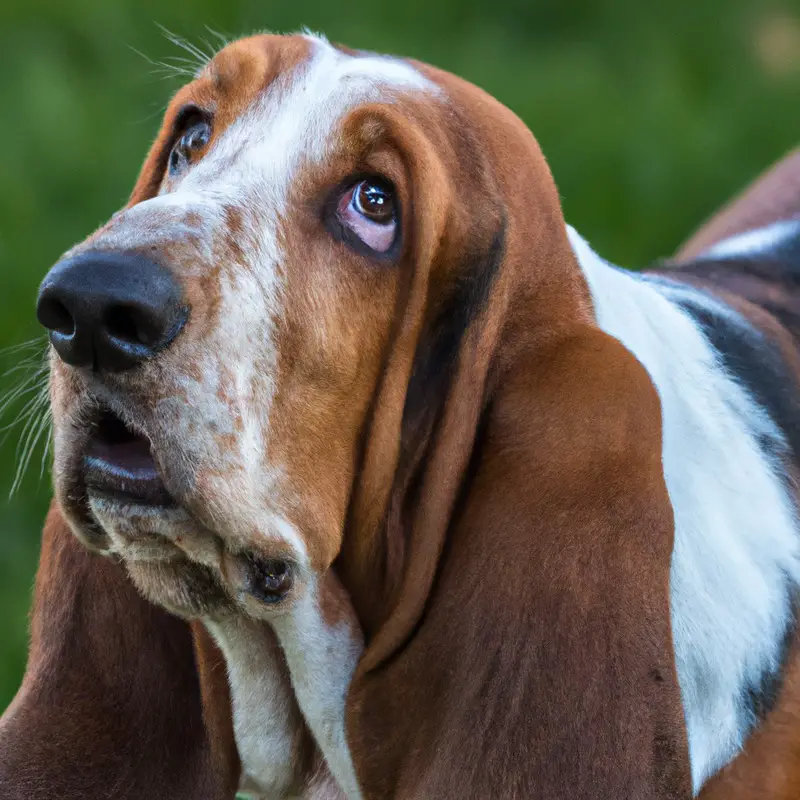
Causes of Separation Anxiety in Dogs
Separation anxiety in dogs can have various causes, including:
- Genetics: Some dogs may be genetically predisposed to developing separation anxiety, inheriting traits from their ancestors who were more prone to anxiety.
- Early Life Experiences: Dogs that were removed from their mothers and littermates too early or had a traumatic experience during their critical socialization period may develop separation anxiety.
- Changes in Routine: Dogs thrive on routine, so sudden changes in their daily schedule, such as a new job or moving to a new home, can trigger anxiety when left alone.
- Lack of Proper Socialization: Dogs that have not been exposed to different environments, people, and animals may become anxious when separated from their familiar surroundings.
- Previous Abandonment: Dogs who have been surrendered or rehomed multiple times may develop separation anxiety due to a fear of being abandoned again.
It’s important to remember that each dog is unique, and the causes of separation anxiety can vary from one individual to another.
How Common is Separation Anxiety in Dogs?
Separation anxiety in dogs is quite common, affecting a significant number of our furry friends. It is estimated that around 14% to 40% of dogs experience some form of separation anxiety.
However, the prevalence can vary depending on factors like breed, age, and past experiences.
Certain breeds, such as Basset Hounds, are more prone to separation anxiety than others. It’s important to recognize the signs and seek help if needed, as separation anxiety can significantly impact a dog’s well-being.

Basset Hounds and Separation Anxiety
Overview of Basset Hounds
Basset Hounds are a breed of dog known for their long ears, droopy eyes, and low-to-the-ground stature. They have a friendly and gentle nature, making them great companions for families.
Bassets are also characterized by their sense of smell, which is among the strongest of all dog breeds.
With their large noses and deep chests, they excel at scent tracking. In terms of exercise, Basset Hounds require moderate activity levels to stay healthy and happy.
They are not known for being overly energetic or hyperactive.
Bassets are generally good with children and other pets, and they have a laid-back and easygoing temperament. Regular grooming is necessary to keep their ears clean and prevent any related health issues.
Are Basset Hounds Prone to Separation Anxiety?
Basset Hounds are known to be more prone to separation anxiety compared to other breeds. Their attachment to their owners and their strong pack instincts can contribute to this.
Separation anxiety can manifest in behaviors such as excessive barking, destructive chewing, and attempts to escape.
It’s important to address this issue early on and provide the necessary training and support to help your Basset Hound feel more comfortable and secure when left alone.
Factors That Contribute to Basset Hounds’ Separation Anxiety
There are several factors that can contribute to separation anxiety in Basset Hounds.
Some of these factors include:
- Breed Predisposition: Basset Hounds are known for their loyalty and dependence on their owners. This strong attachment can make them more prone to developing separation anxiety when left alone.
- Lack of Socialization: If a Basset Hound has not been properly socialized from a young age, they may struggle with being alone as they are not accustomed to being away from their owners or familiar environments.
- Previous Traumatic Experiences: Dogs that have experienced past trauma such as abandonment or neglect may be more susceptible to developing separation anxiety.
- Sudden Changes in Environment or Routine: Basset Hounds are creatures of habit and thrive on consistency. Any sudden changes in their environment or daily routine can trigger anxiety when left alone.
- Lack of Mental Stimulation: Basset Hounds are intelligent dogs and require mental stimulation to keep them engaged and prevent boredom. Without appropriate mental stimulation, they may become anxious when left alone.
Understanding these factors can help owners better address and manage their Basset Hound’s separation anxiety to ensure their well-being and happiness.
Signs of Separation Anxiety in Basset Hounds
Signs of Separation Anxiety in Basset Hounds can include excessive barking, howling, or whining when left alone. They may also display destructive behavior, such as chewing on furniture or belongings.
Some Basset Hounds may have accidents in the house or attempt to escape.
Physical symptoms like pacing, drooling, and excessive panting can also indicate separation anxiety. If you notice these signs when you leave your Basset Hound alone, it’s important to address the issue and seek help from a veterinarian or canine behaviorist to develop a management plan.
Managing Separation Anxiety in Basset Hounds
Establishing a Routine and Providing Mental Stimulation
Establishing a routine and providing mental stimulation are key aspects of managing separation anxiety in Basset Hounds. To establish a routine, I recommend sticking to a consistent schedule for feeding, exercise, and potty breaks.
This helps create a sense of predictability for your dog.
Additionally, providing mental stimulation through puzzle toys, interactive games, and training sessions can help keep your Basset Hound mentally engaged and reduce anxiety. Mixing up the activities and incorporating new challenges can keep them entertained and distract them from their anxiety.
Gradual Departures and Short Absences
To help manage separation anxiety in Basset Hounds, gradual departures and short absences are key. Start by practicing leaving the house for short periods of time, gradually increasing the duration.
This helps your Basset Hound become accustomed to your absence without feeling overwhelmed.
Make sure to provide plenty of mental stimulation, such as puzzle toys or interactive games, to keep them occupied while you’re away. Reinforce positive behavior and reward your dog when they remain calm during these practice sessions.
It’s important to be patient and consistent throughout the process.
Positive Reinforcement and Obedience Training
Positive reinforcement and obedience training are essential in managing separation anxiety in Basset Hounds.
Rewarding good behavior with treats, praise, and affection helps to reinforce positive associations, encouraging them to feel more secure when left alone.
Obedience training teaches them basic commands and helps establish clear boundaries and expectations.
Consistency and patience are key in this process, as it takes time for them to learn and adjust.
Avoid punishment-based methods, as these can increase anxiety in dogs.
Stick to positive reinforcement and watch your Basset Hound thrive.
Crate Training as a Tool for Managing Separation Anxiety
Crate training can be a valuable tool for managing separation anxiety in Basset Hounds.
By creating a safe and comfortable space for your dog, they can feel secure when you’re not around.
Introduce the crate gradually and make it a positive experience with treats, toys, and a cozy bed.
Use the crate for short periods initially and gradually increase the duration.
Additionally, don’t forget to provide mental stimulation and exercise to help alleviate anxiety.
Seek guidance from a professional if needed, as they can provide personalized strategies for your dog’s specific needs.
Seeking Professional Help for Basset Hounds with Separation Anxiety
Consulting a Veterinarian or Canine Behaviorist
If your Basset Hound is struggling with separation anxiety, consulting a veterinarian or canine behaviorist is a wise step.
These professionals have the expertise to evaluate your dog’s specific situation and provide tailored recommendations.
They can help you determine the severity of the anxiety and develop a comprehensive treatment plan.
Additionally, they may suggest behavioral modification techniques, medications, or other supportive measures to alleviate your Basset Hound’s separation anxiety.
Seeking their guidance will ensure that you are on the right track to helping your furry friend feel more secure and comfortable when left alone.
Medications for Managing Separation Anxiety
Managing separation anxiety in basset hounds can sometimes require the use of medications.
There are a few options that can help alleviate their anxiety.
Medications such as anti-anxiety drugs, selective serotonin reuptake inhibitors (SSRIs), and tricyclic antidepressants (TCAs) can be prescribed by your veterinarian.
These medications work by modifying the chemicals in the brain that regulate mood and anxiety.
It’s important to consult with a professional to determine the best medication and dosage for your basset hound.
Medications should always be used in conjunction with behavioral training and other supportive measures for the best results.
Additional Supportive Measures
So you’ve tried establishing a routine, providing mental stimulation, gradual departures, positive reinforcement, and crate training, but your Basset Hound is still struggling with separation anxiety. Don’t worry, there are additional supportive measures you can consider.
One option is to try desensitization and counterconditioning techniques to help your dog become more comfortable with being alone.
Another option is to use calming aids, such as pheromone diffusers or anxiety wraps, which can help alleviate your dog’s anxiety. Additionally, you may want to explore interactive toys or puzzles that can keep your Basset Hound occupied and mentally stimulated while you’re away.
Remember, every dog is different, so it’s important to find what works best for your furry friend.
Final Verdict
Basset Hounds are indeed prone to separation anxiety when left alone. This breed’s loyal and dependent nature, combined with their strong attachment to their owners, makes them more susceptible to this condition.
Factors such as changes in routine, lack of mental stimulation, and lack of proper training can contribute to the development of separation anxiety in Basset Hounds.
If you have a Basset Hound displaying signs of separation anxiety, it is crucial to establish a routine, provide mental stimulation, and seek professional help if needed. With proper management and support, Basset Hounds with separation anxiety can lead happy, fulfilling lives.

